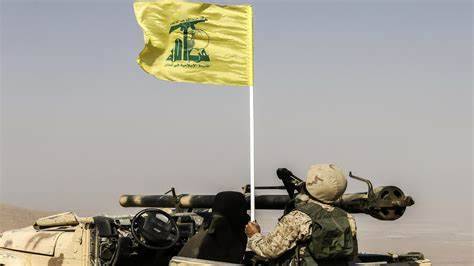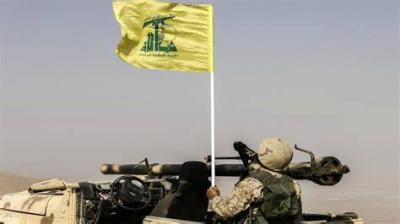Iran is trying to defuse tensions with the United States and avoid a painful U.S. strike in response to the attack on an American observation tower at the Iraqi-Jordanian border. This Iranian shift was highlighted by the announcement from the Iraqi Hezbollah armed factions to suspend their military and security operations against U.S. forces to avoid embarrassing the Iraqi government.
The Iranian flexibility raised questions about whether the de-escalation with the Americans and their allies would include the southern Lebanese front, and whether Hezbollah would step in to contain the situation. However, military and strategic expert Brigadier General Khalil Halou concluded that "Hezbollah in Lebanon is waging war against another enemy, which is Israel." He stated to "Asharq Al-Awsat" that, although Hezbollah's political rhetoric against the Americans is high-pitched, it has not carried out any operations against U.S. forces since the start of Operation Al-Aqsa Flood. Halou noted that the attack on the observation tower near the Jordanian border put the Americans in a dilemma; they decided to retaliate and will definitely execute their threat, regardless of the scale and location of the strikes. This retaliation contradicts their desire to avoid escalation, and no one knows if the American military operation might necessitate involvement from Iran's arms throughout the region, potentially upending the scene.
The attack carried out by Iranian-backed Iraqi militias on Sunday, using a drone on an American logistics base in the Jordanian desert adjacent to Iraq and Syria, resulted in the deaths of three American soldiers and injuries to dozens. Dr. Riyad Ghahwaji, CEO of the Near East and Gulf Institute for Military Analysis (Enigma), noted that the announcement from the Iraqi Hezbollah will not change anything in the U.S. military plans, which are nearing execution and revenge for the deaths of American soldiers near Jordan. Ghahwaji clarified to "Asharq Al-Awsat" that the situation for Hezbollah in southern Lebanon is now closely linked to Hamas, and their battle against Israel will continue until the military operations in Gaza cease, discounting any de-escalation in southern Lebanon before the Israeli operations in Gaza stop as part of an acceptable solution for all parties.
The slogan of the unity of arenas, previously declared by Hezbollah's Secretary-General Hassan Nasrallah, appears to be inconsistent with reality since the launch of Operation Al-Aqsa Flood on October 7. The resistance axis has not engaged directly with Israel, despite the invasion and destruction of Gaza, and the southern front has remained merely a supporting and distracting force, indicating that Hezbollah is unconcerned with what is happening in other arenas, whether in Syria, Iraq, or Yemen.
Political writer and researcher Qassem Qussair, who has insight into Hezbollah's atmosphere, emphasized that the situation in Lebanon will remain separate from what is occurring in Syria and Iraq. He confirmed to "Asharq Al-Awsat" that Hezbollah’s leadership balances its military actions and responses to Israeli violations of Lebanese sovereignty while considering the national interests of Lebanon, pointing out that the battles in southern Lebanon are tied to the fight for Palestine. Thus, if there is a ceasefire from the Americans in other arenas, Hezbollah will not cease its operations as long as Gaza remains ablaze.
International envoys continue to visit the region and Lebanon to contain escalation and prevent the expansion of the fighting fronts. Qassem Qussair noted that the Americans are promoting de-escalation and marketing the idea of a two-state solution to prevent the region from sliding into war. However, he linked these attempts to the American response, stating: If there is American escalation against either the resistance factions or Iran, it will encompass the entire region, including Lebanon.




